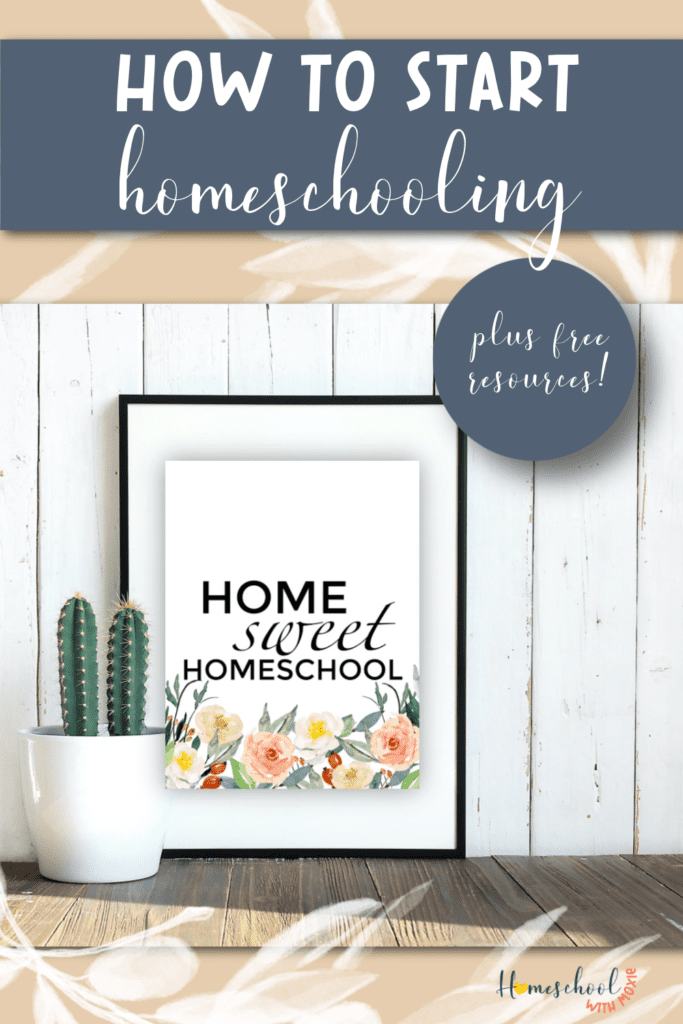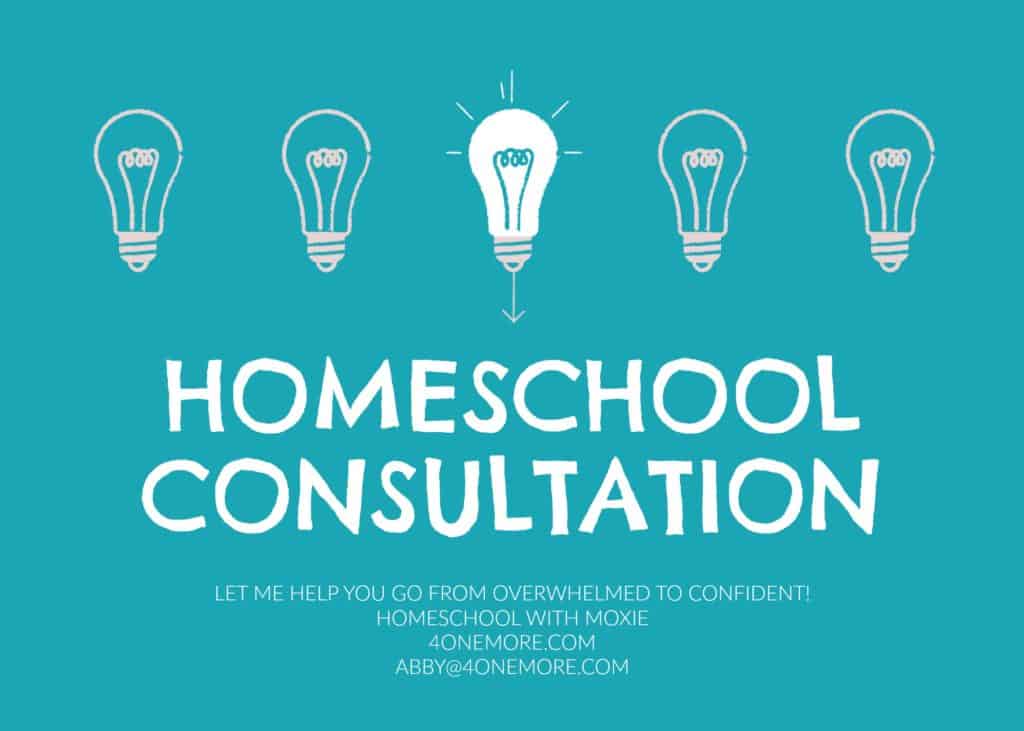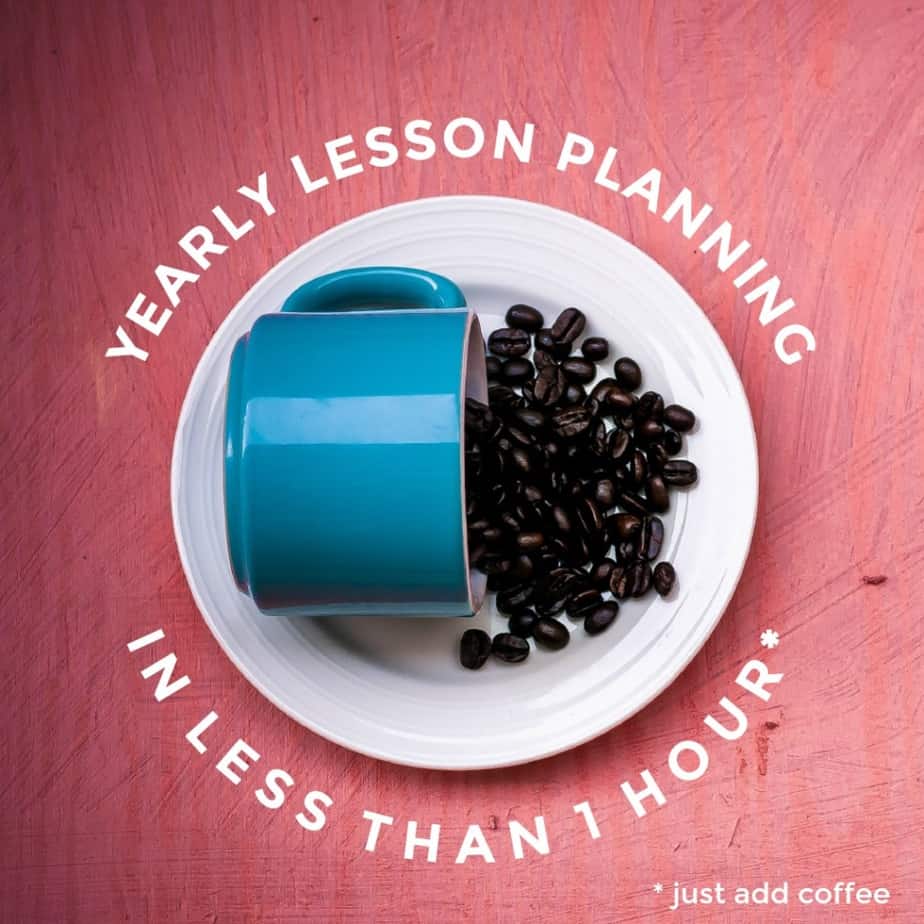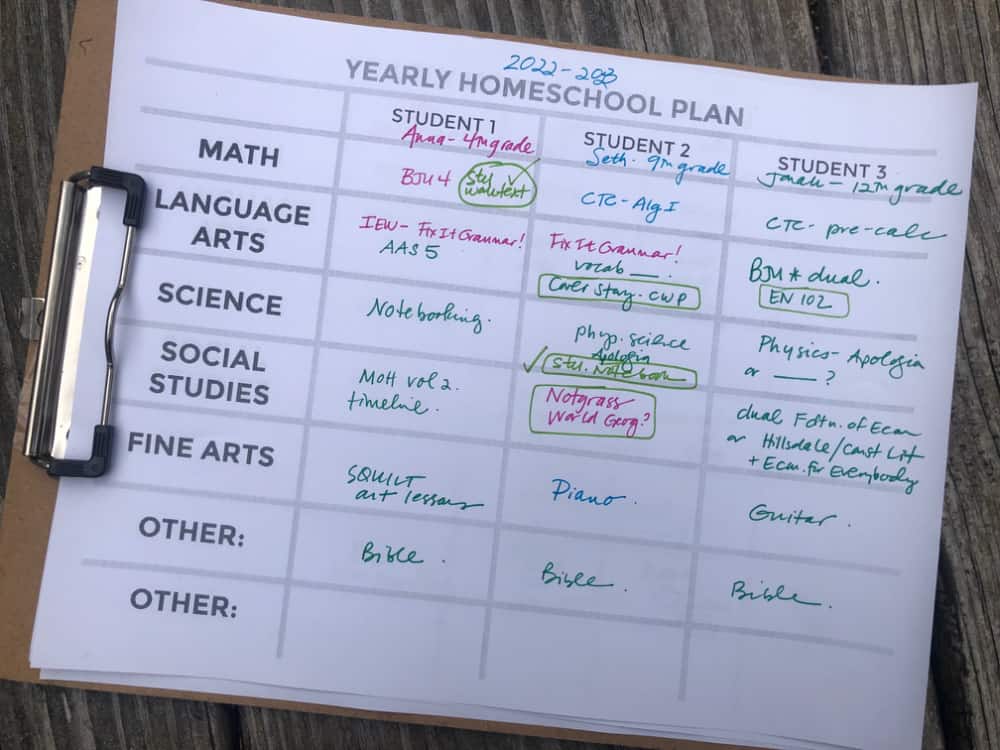So you’ve decided to homeschool! Congratulations! If you’re wondering how to start homeschooling, you’re in the right place. Pin this page for later so you can find it. I’ll continue to update it with new to homeschooling resources that will save you tons of time.

This page contains affiliate links for your convenience.
Learn about Homeschool Laws
The first step when beginning to homeschool is to check out the legal requirements for where you live. The best resource for this in the United States and Canada is the Homeschool Legal Defense Association, or HSLDA.
Once you take the steps to be in compliance to the laws of your state or province, you’re ready to jump in to homeschooling!
If you’re homeschooling in Pennsylvania, check out my PA evaluations page.
Here’s the thing: it’s easy to get overwhelmed quickly by how much information you need to process. Let me encourage you to be a “just in time” learner. That is, don’t worry about knowing everything, just learn what you need for the very next step. So, check out How to Start, but maybe don’t worry about the High School section if you only have littles right now! You will grow in your homeschooling just like you grew in your parenting – you didn’t know it all when you first started!
Want a Homeschool Consultation?

Schools are closed? Now What? How to Homeschool Short Term
How Much Does Homeschooling Cost?
You can spend any amount of money you’d like on homeschooling. From complete curriculums that run several hundred dollars per child, to homeschooling nearly for free – it’s up to you and your budget! I’ve homeschooled five kids from kindergarten all the way through high school, and I’m here to tell you that it doesn’t have to break the bank. You can provide a thorough and challenging homeschool experience on a thin budget. Here are my best tips.
- Saving Money on Homeschool Curriculum
- The Thrifty Girl’s Guide to Living on One Income
- Thrifty Girl’s Guide to Homeschooling on a Budget
- How Much Does It Really Cost to Homeschool?
What about Deschooling?
Don’t jump into homeschooling and create a “school at home.” First, deschool a bit if you’re pulling the kids out of public school.
If your child is leaving a traditional school setting, especially for negative reasons, you will probably want to deschool for a bit. Don’t jump right into a rigid schedule. Get used to being home during the day with each other. Let them have breathing room to get back into hobbies and decompress.
Encourage lots of reading and creative play. Definitely limit the electronics during this time! Get outside and enjoy your new start.
Deschooling might look like:
- field trips
- visiting museums
- spending time at the library
- pursuing hobbies
- reading, lots of reading
- crafts
- board games
- time outside
- build and create together
- physical activity – team sports, hiking, swimming, backyard play
- cooking and baking
- watching documentaries
- visiting family and relatives
Listen to this Podcast Episode on Homeschool Mindset
Listen to episode 28 of the Homeschool with Moxie Podcast – How to Get Started with Homeschooling. We’ll tackle multiple areas, but especially mindset issues for homeschooling. Then, make sure to check out Episode #29 for the practical side of how to get started.
Here’s a list of resources mentioned on this episode:
- Check out HSLDA for homeschool law by state in the US
- Want to Understand Your Kids? How the Four Tendencies Personality Profiles Will Rock Your Homeschool
- Why We Homeschool: Our Story
- Books For Homeschool Moms – Printable List
- Professional Development for Homeschool Moms
- The Essential Guide to Homeschool Methods
- 88 Things First Time Homeschool Moms Need to Know
- FREE online workshop >> Homeschooling 101: Basics for Parents Before You Start
Here’s How to Start Homeschooling
Or, if you’re starting to homeschool with kindergarten, then just hit the basics and foundation blocks of learning without overwhelming yourself or your kids!
To learn more about how to start, check out these comprehensive posts:
- The Only 2 Things You Need to Start Homeschooling Tomorrow
- Homeschooling for Beginners: The Simple Guide to Homeschool Your First Year
- New to Homeschooling? Get Your Questions Answered Here!
- Ultimate Guide to Homeschooling: the Homeschool with Moxie Podcast Episode #29
- 30 Things You Need to Know Before You Start Homeschooling
- 50 Tips for First Time Homeschoolers
- 88 Things First-Time Homeschool Moms Need to Know
- How Much Does It Really Cost to Homeschool?
How Much Planning Is Involved?
Homeschool planning doesn’t need to be complicated! If it takes you hours each weekend to prepare for the school week, then you’re making it much harder than it needs to be.
Remember, you’re not doing school at home. You’re essentially tutoring your youngest kids one-on-one, and the older kids are (hopefully!) very independent learners by the high school years.
You can always homeschool multiple ages together, and the best kind of curriculum is open & go, which means you don’t need to consult a confusing and large teacher’s manual each day for each subject.
Here are some resources which will help you with your planning:
- Yearly Lesson Planning in Less Than One Hour
- How to Plan Your Homeschool Year on Trello
- Eclectic Homeschooling – Homeschool with Moxie Podcast episode #38
- How to Plan Your Homeschool Year Like a Pro
- I don’t lesson plan (and you shouldn’t either)

Sketch out your year plan
This is the first step. This year plan is not a detailed teacher planning book with all your days filled in. In fact, even as a former classroom teacher, I don’t lesson plan in my homeschool (and you shouldn’t either).
All you need to do at this point is grab a sheet of paper, list the subjects down one side and your kids across the top. If you are only homeschooling one child, then just list all the subjects they will need to cover this year and leave a space next to each for filling in your plan.

Make a rough sketch of which subjects you will need to cover for each child to fulfill the law. Notice at this point if you already have resources, or if you can simplify your life by combining several kids. Some subjects don’t need covered every year or every semester, so make a preliminary decision about that.
Get to know the homeschooling styles
Homeschooling is not a one-size-fits-all educational approach. There are as many flavors of homeschooling as there are homeschooling families.
This is part of the beauty of it. Homeschooling is meant to fit your personality, your style, your child’s learning style and needs, their strengths and weaknesses, and their passions. You don’t have to try to fit a round peg into a square hole. It’s totally customizable!
When you’re first starting, you don’t have to completely understand all the styles. You will definitely learn as you go what you like, and what works for you or doesn’t work for you. But if you’d like a downloadable cheatsheet with the most popular homeschool styles and some curriculum examples for each one, then you can grab a copy below.
How Do I Know Which Curriculum to Buy?
There is so much amazing curriculum available for homeschooling! It’s not like it was 30 years ago.
The curriculum you choose will depend a lot on your situation. Ask questions like:
- How independent are my kids
- How much confidence do I have in piecing together my own curriculum
- What’s my budget for homeschool materials?
- How much space do I have to store homeschool stuff
- Am I homeschooling multiple kids together for some subjects
- How do my kids prefer to learn – textbook, reading, visual, auditory, kinesthetic
- What are my goals with homeschooling? Check your why.
You can definitely start homeschooling on a tight budget, but not everything that is free is good quality!
Here are some resources to help you with choosing curriculum:
- How to Piece Together an (almost) Free Homeschool Curriculum
- 2 Things Homeschool Moms Need to Know About Curriculum
- Saving Money on Homeschool Curriculum
Here’s where this simple guide takes a “choose your own adventure” diversion as you start homeschooling.
If you’re feeling confident, do this
If you’re feeling comfortable with purchasing curriculum and resources for your year, then go ahead, but keep this in mind:
- stay simple your first year
- you can always change curriculum mid-stream if it’s not working
- group multiple kids together as much as possible for your sanity
- don’t try to replicate school at home
- focus on delight-driven topics as much as possible at the beginning
- try to pick “open and go” resources that don’t require a PhD to read the teacher’s manual
- don’t get overwhelmed thinking you have to do all. the. things. I don’t even use printables (and you shouldn’t either)
- do make sure you’re fulfilling the homeschool law
- focus on creating an environment where curiosity and love of learning flourishes
- read. a lot!
If you need to start quickly, then do this
If you’re deschooling and putting off choosing curriculum for a bit, but you need to start homeschooling (tomorrow!), then keep this in mind:
- You need to focus on reading, writing, and math. These are the tools of learning.
- Visit the library with your children and gather books that excite their curiosity. Plan to study those topics.
- Grab a math scope and sequence and start working on the areas where your child is weak.
- Add in other required subjects as you are able.
Focus on the tools of learning
No matter which style of homeschooling you eventually settle into, just know that your goal is to raise an independent life-long learner. Don’t stress yourself out about covering every detail in every subject. Your kids will never master it all. But they need to know how to read well, express themselves well in writing, and math computation. Focus on these things. But enjoy the other areas of learning as well! Just don’t think that you will ruin your kids if you don’t do it all perfectly.
Take that nature walk.
Go on that historical field trip.
Give your child the day to work on that passion project or hobby that excites them.
Enjoy this new venture together. Sure, some days you won’t really like it. But remember WHY you chose to homeschool in the first place and get back on track. One foot in front of the other. Just one day at a time. You can do it!
Episode 205: How do I start homeschooling?
If you’re ready to start homeschooling, here’s the 30,000 foot view with my advice as a seasoned homeschool mom with soon to be 3 high school homeschool graduates. You don’t have to wait until everything is perfect!
Listen to episode 205 of the Homeschool with Moxie Podcast below.
Schedules & Routines
I know a lot of you have probably checked Pinterest for “Homeschool Schedules” but I do want you to know that a rigid schedule isn’t the optimal choice for most homeschools.
Instead, you’ll want to invest time in setting up routines for yourself and the kids and getting them to be automatic.
Here are some routines to consider. Do your kids know what to do when:
- they wake up
- they need help
- they complete an assignment
- they’re bored
- they need to do chores
- you’re busy with another child
- etc!
Here are some resources about schedules & routines for your homeschool:
- Easy Homeschool Scheduling with Trello
- Why You Need Routines Rather Than Schedules
- How to Get Ready for the Homeschool Year: Schedules & Routines
- Time Management for Homeschool Moms
- Video Peek into our 1st grader’s Workboxes
- A Day in the Life of a Homeschool Middle School Student
- A Day in the Life of a Homeschool Mompreneur
- A Day in the Life of a Homeschooled Elementary Kid
- A Day in the Life of a Homeschooled Teen
Homeschool Organization Made Simple
While you don’t need to be an organization expert to homeschool, setting up some systems at the beginning will greatly ease the chaos of the extra paperwork.
Here are some resources to help you with organization as your start homeschooling:
- How to Get Ready for the Homeschool Year: Curriculum Organization
- Amazon Deals for Homeschool organization
- Tracking Progress in Your Homeschool
- 1st Grade Workboxes Video
- IKEA Homeschool Organization
Your Homeschool Space
You definitely don’t need a dedicated homeschool room in order to start homeschooling! You can do it in any sized house or from any location.
In fact, our family has done everything from homeschool rooms with cute little desks to everyone at the kitchen table, to everyone spread out throughout the house.
It has changed through the seasons, according to the ages of our kids, and according to our current housing situation.
So, if you don’t have a homeschool room – it’s okay! If you do have a homeschool room – take advantage of it!
Here are some resources to help you with any homeschool space you may have:
- Amazing Homeschool Spaces
- IKEA Ideas for Homeschool Rooms
- 9 Things They Need in a Classroom That Homeschoolers Can Do Without
- Homeschool Space Solutions – the Homeschool with Moxie Podcast episode #5
- Vote for a Winner of the First Amazing Homeschool Spaces Contest
- How to Homeschool Without a Homeschool Room
Can You Really Homeschool High School?
Can you really homeschool high school? Yes! In fact, I consider the high school years more rewarding and “easier” to homeschool than the early elementary years, especially with multiple kids.
Even if you’re just about to start homeschooling with your teen for the very first time, it’s never too late to jump in and have some rewarding years before they graduate. Episode #129 of the Homeschool with Moxie Podcast is all about Starting Homeschool in High School.
You need to understand that as your kids get older, they should be getting more independent. Your role as the homeschool mom changes from a direct tutor and instructor to a mentor, guide, and cheerleader.
Learn more with these resources:
- Can I Really Homeschool High School?
- 9 Benefits to Homeschooling High School
- Homeschool with Moxie Podcast episode #14: Homeschooling High School
- How to Create a Transcript for Your Homeschooled High Schooler
- Homeschooling High School with Transcripts Made Easy (Review)
- Trello for homeschool high school project management
- 10th grade Homeschool Curriculum Plan
- 11th Grade Homeschool Curriculum Picks
- A Day in the Life of a Homeschooled Teen
- Want to Know the Secret to Motivated High Schoolers?
- Tracking Progress in Your Homeschool
- Tracking High School Progress
- Creating an Interest-Led Elective for Your Teen
- Ultimate YouTube Playlist for World Geography
- Ultimate YouTube Playlist for Physical Science
- How to Teach Your Kids to Create Income Streams
Kindergarten Homeschooling is Fabulous
Kindergarten is a fabulous age to start homeschooling! Remember to encourage the natural curiosity and love of learning that your four through six year olds are naturally born with!
Enjoy learning together, have a gentle approach with a flexible schedule, do a ton of reading aloud, and use as many hands-on experiences as possible.
This age is perfect for nature walks, discovering the world around them, and enjoying stories (even if they can’t read fluently yet!)
You’ll definitely want to check out the Ultimate Guide to Homeschooling Kindergarten.
Here are some resources to help you homeschool kindergarten:
- A Peek Inside BJU Press Kindergarten Math Curriculum
- Reading Eggs Review
- StoryTime Treasure from Memoria Press Review
- Classical Phonics by Memoria Press Review
- 25 Unit Studies
Benefits of Homeschooling K-8th
Before your kids reach high school, where you’ll need to deal with credits, transcripts, and graduation requirements, you can feel more flexible to pursue topics of interest, read and study deeply with your kids, and enjoy the learning process.
In the K-8th years, you can also easily group multiple ages together.
Do you have a kindergartener and a 2nd grader? Go ahead and combine them for history, science, art & read aloud.
You can even combine your kids in grades 1, 4, and 6 in the same subjects – even though you might require more of your 6th grader. They can still learn the same topics and complete similar assignments, just on their level.
For example, if you’re studying the American Revolution, your first grader will enjoy hearing the stories and role playing what he learns. Your fourth grader might color a map of the colonies and read a biography on George Washington. Your 6th grader might color a map of the colonies and also create a timeline of the major events and battles of that period.
Resources for K-8th
Here are some resources for helping you to homeschool the K-8th years:
- Our Complete Language Arts Plan for K-8th
- Super Simple Social Studies Plan for Multiple Kids in K-8
- How to Teach Science K-8: Homeschool with Moxie Podcast episode #41
- Homeschool Curriculum: Combined Subjects for Grades 7, 6, 5 & 2
- Why a Morning Basket Works
- 25 Unit Studies
- 5th Grade Curriculum Plan
- 3 Strategies to Use When Your Kids Don’t Love to Read
- Let Your Young Kids Have Plenty of Playtime
Sites like UnitStudy.com have fabulous weekly deals that will help you be able to teach multiple ages together with interesting unit studies.

Tips
Take the advice that works for you and leave the rest! You do you with homeschooling. That’s what I talk about when I discuss homeschooling with moxie – embrace your journey and find your groove.
Here are some tips for you as you start homeschooling:
- Homemaking Tips for Homeschooling Families
- 50 Tips for First-Time Homeschoolers
- 5 Key Productivity Tips
- Key Things Every Homeschool Mom Needs to Know
- 88 Things Every First Time Homeschool Mom Needs to Know
- How to Homeschool Multiple Aged Elementary Kiddos + Babies & Toddlers in the Mix!
- 6 Ways You’re Making Homeschooling Harder Than It Needs To Be
- Our Kids’ Chore System (and why we pay them)
- Balancing Housework & Homeschool
- How to Thrive as a One-Income Homeschooling Family
- 7 Things I Love About Eclectic Homeschooling
Should I Use Printables?
I know that the homeschool world is saturated with printables, and if they work for you and your kids – great! Keep on.
But, if you’re overwhelmed with the piles of worksheets and don’t think they’re really helping your kids, then consider why I don’t use printables (and you shouldn’t either).
But, if you’re thinking: What in the world can I use if I don’t use worksheets? Here are strategies that you can use instead.
Here are 5 more reasons why I don’t use printables.
While I don’t advocate filling out reams of worksheets as the bulk of your homeschool, there are times when printables are helpful, and of course we use them (in small amounts!) in our homeschool.
Here are some printables that you might like as you start homeschooling:
- Repetition Punch Cards
- Video Response Sheets for the The Ultimate YouTube Playlist for World Geography
- Grocery Store Scavenger Hunt Packet
- The GeoBear Project
- Plus more available for FREE in my members-only resource library
- Notebooking
Curriculum Ideas by Subject
Here are some inspiration posts and curriculum reviews of subject-specific curriculum and ideas.
Language Arts
- Our Complete Language Arts Plan for K-8th
- Reading Eggs Review
- StoryTime Treasure from Memoria Press Review
- Classical Phonics by Memoria Press Review
- Why We Ditched the Spelling Lists and Use All About Spelling Instead or listen to it on the podcast episode #39
- How Our Homeschool Reading Time Has Been Revolutionized
- Homeschool Reading Strategies on the Homeschool with Moxie Podcast episode #4
Math
- A Review of Bob Jones Math for Homeschool
- Best Homeschool Math Curriculum
- CTC Math Review
- ThinkWell Homeschool High School Math Review
Social Studies
- Super Simple Social Studies Plan for Multiple Kids in K-8
- 5 Reasons We Love Using the Mystery of History in Our Homeschool
- Minimalist History for Homeschoolers with Multiple Grades
- The Story of the 13 Colonies and the Great Republic by Memoria Press (Review)
- Ultimate YouTube Playlist for World Geography
- Homeschool Geography Mini Lessons Round-up
Science
- How to Teach Science K-8: Homeschool with Moxie Podcast episode #41
- Homeschool Science HELP!
- Hassle-free Homeschool Science with Apologia’s Exploring Creation Curriculum
- Apologia Science Curriculum Review
- Supercharged Science Review
- CrossWired Science Review
- 7 Amazing Science YouTube Channels
- Ultimate YouTube Playlist for High School Physical Science
Art & Music
- How to Teach Art to Children – Evan-Moor Curriculum Review
- Review of ARTistic Pursuits Art for Children
- HIGASFY Art History Video Series Review
- Music Lessons for Homeschool Students – Homeschool with Moxie Podcast episode #34
- Music Appreciation for the Middle Grades from Zeezok Publishing
- How to Add Music Education to Your Homeschool
- Homeschool Art Ideas for the Non-Artsy Mom
- K-2 Homeschool Music Lesson Plans
Foreign Language
- How to Teach Your Kids a Foreign Language, even if they don’t speak it! – Homeschool with Moxie Podcast episode #36
- Growing Foreign Language Fluency Using TalkBox.Mom
Bible
Can I Successfully Homeschool My Child with Dyslexia?
If you’re homeschooling a child with learning struggles or dyslexia, you might think that you’re not qualified and they’d be better off in a classroom.
I want you to listen to our podcast episodes to be encouraged and equipped to homeschool your child with dyslexia.
Homeschooling gives you the opportunity for a one-on-one tutoring approach that the public school classroom teachers wish they could use with their students (I know because I used to be one!). In fact, homeschooling is the ultimate IEP – individualized education program.
Your dyslexic students will actually thrive in homeschool and you can learn what you need to know to teach them in the best ways possible.
Can I Work from Home while Homeschooling?
Finally, I know many of you wonder if you can work while homeschooling? Yes, it’s completely possible to homeschool and work on the side! I have never had a full-time out-of-the-home career while homeschooling, although I know many moms who do. I’m usually working on a couple side gigs at any one time because that’s just how I roll. Here’s my experience working on the side and how I fit it all in.
We had a great conversation with veteran working homeschool mom, Jen Mackinnon, on episode 144 of the Homeschool with Moxie Podcast, where she shared her best tips and strategies for working while homeschooling.
Contact Me
I hope this page of resources is super helpful to you as you figure out how to start homeschooling! I’m here to help. If you think of another topic that you’d like to see included here, please email me at abby (at) 4onemore (dot) com.
Happy Homeschooling!



